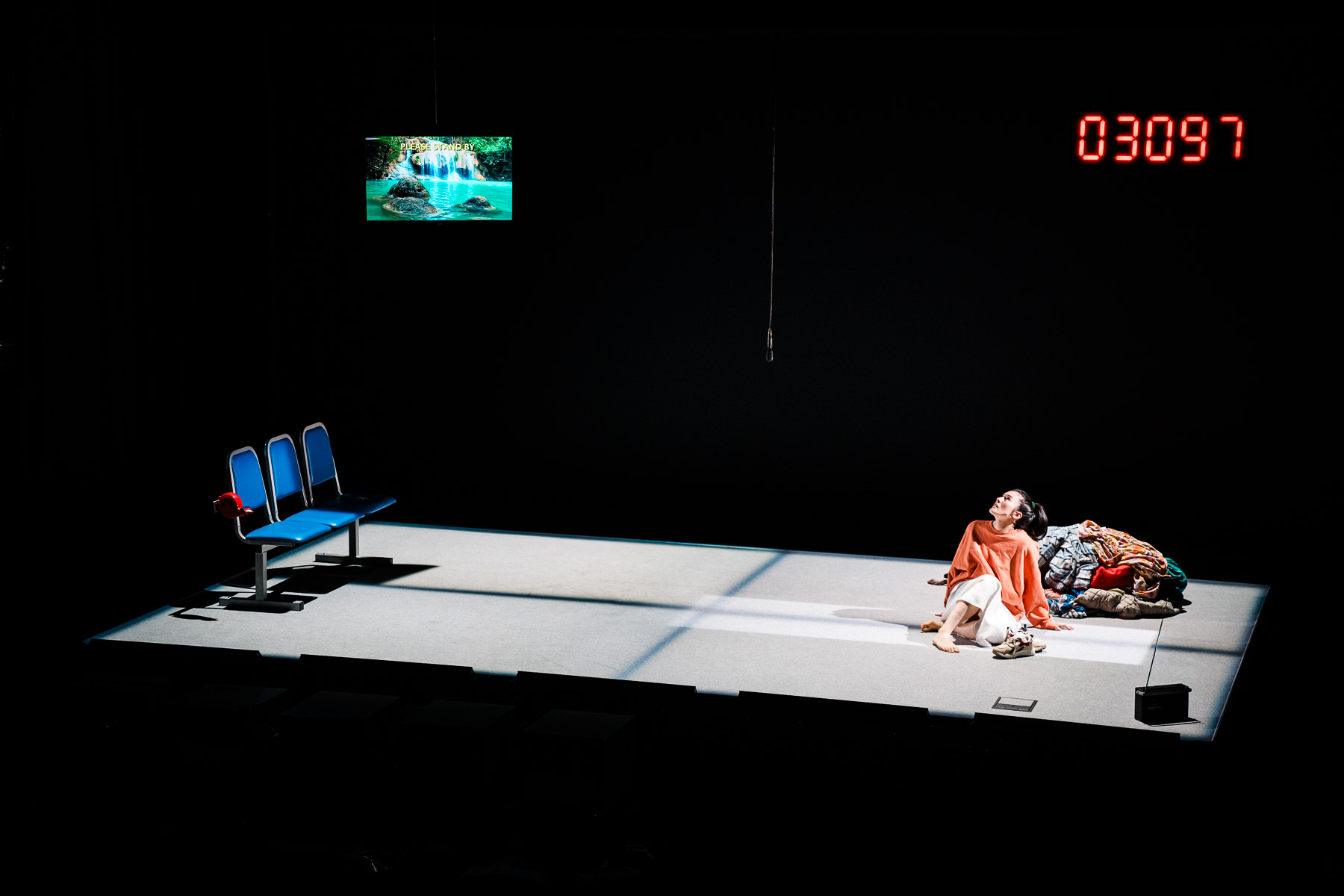First staged in 2016 at the Galway International Arts Festival in 2016, Arlington bills itself as a dark fable of surveillance, connection, and the power of imagination. Despite some interesting staging and strong performances, Shotput Theatre’s production unfortunately struggles to deliver on its ambitions.
Enda Walsh’s play opens in a dystopian future with Isla trapped in a room in a tower block waiting for a number to be called. Her only connection to the outside world is the voice on the other side of the wall who watches and collects her stories. Today’s voice is different, however, and the connection that forms has far greater repercussions than either expect.
There’s much to unpack here, as Walsh touches on class dynamics in which both sides, the keepers and the kept, are crushed under a regime that isolates people and limits free will. In the post-pandemic era of growing isolation through social media and surveillance in the name of security, this should be a home run, especially as the production draws on elements of 1984 and Black Mirror’s “Fifteen Million Merits”. However, Arlington doesn’t add anything new or truly expound on the subject matter, even as it aims for a hopeful denouement.
Divided into three acts, the first is undoubtedly the strongest. Aisha Goodman and Alex Austin deliver a strong repartee despite the distance between their characters. Goodman in particular fully encapsulates Isla’s yearning for any form of connection. The staging aids this greatly, with Isla trapped on the raised stage of her room with nought but a bench, screen, and radio for company, while Austin’s Young Man is obscured in shadows below, his back to the audience as he observes the CRT monitors that surveil her.
While these differing levels create a sinister undercurrent, it feels like it’s been added without full consideration for the wider production. Sparks fly from the monitors and power cuts out as the Young Man attempts to engage with Isla, but this isn’t expanded upon or brought up again.
Likewise, the lower levels are all but abandoned in later acts which feels like a missed opportunity. Come the third act, when the Young Man finds himself in Isla’s position. He’s instead left to engage with a disembodied voice despite the ready availability of an established set. While metaphorical for the amorphous regime, it removes from the play’s dynamism even when Austin races around the stage performing ridiculous tasks to earn sleep.
Between the two acts, Jack Anderson performs a dance routine as he paces his room with growing frustration and despondency at his entrapment. It’s an interesting bridge, with Anderson’s jerking movements and pulsing synthwave soundtrack contrasting with his gormless expression and leading to the inevitable crescendo as he takes his life to escape imprisonment. Unfortunately, this act drags on and it’s clear the audience loses interest.
This is the primary issue with Arlington. With some refinement, there’s a strong 60-minute play here, but at 90 minutes, it feels over-produced and overstays its welcome, never quite nailing the themes it aims to address.


Comments